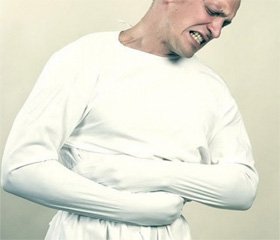Международный неврологический журнал 4 (66) 2014
Вернуться к номеру
The dynamics of cognitive event-related potentials as an indicator of rehabilitation efficiency in patients with early stages of schizophrenia
Авторы: Osokina O.I. - Donetsk national medical university named after M. Gorky, Ukraine
Рубрики: Неврология
Разделы: Справочник специалиста
Версия для печати
Cognitive impairment, which is always present in schizophrenia is the most important parameter influencing the clinical prognosis, adaptation and personal recovery. Event-related potentials reflect all stages of cognitive functioning from the moment of perception the stimulus to the motor (or other) reaction to it. The aim of this work is to evaluate the effectiveness of existential-personal rehabilitation based on the results of neurophysiological study in the two-years period from the date of schizophrenia manifestation. To study the dynamics of cognitive functioning in schizophrenia there was conducted the method of evoked potentials of the brain in 46 patients with early stages of this disease (experimental group) and 30 mentally healthy individuals (control group). Time analysis of sensorimotor response has showed it significant increased (p < 0,001) in schizophrenics compared with the control group. Also it has been found qualitative change of the brain evoked responses (reduction of amplitudes and increased latencies P200, N200, P300 and N400) auditory and visual modalities at Cz and Oz, with a 50% probability presentation of the significant signal. To investigate the impact on cognitive functioning rehabilitation model, the experimental group was divided into two groups: 23 patients who received integrated treatment (pharmacotherapy and rehabilitation) – group A, and 23 patients who received only pharmacotherapy – group B. These groups of patients were examined twice: before the start of rehabilitation and in two years. After two years in the group A there was detected a decrease of sensorimotor response time for visual and auditory stimulation (p < 0,05). These data did not differ from the control group (p > 0,05). The change of sensorimotor response time was not detected (p < 0,05) in two years in the group B. In the group A two years after the course of rehabilitation the most of evoked potentials waves were different from the initial study (p < 0,05), and were not different (p > 0,05) from the control group: amplitudes of visual P100, N100, P200, N200, P300 were increased and their latencies were decreased, and there were reduced auditory N200, P300, N400 latencies. This indicates normalization in the group A of the brain functional parts and neurotransmitter systems that are responsible for later cognitive stages of information processing, and a high degree of cognitive function recovery, which the relevant brain structures were responsible for.
In the group B two years after the manifestation of schizophrenia there were remained increased latencies of visual N100 (p = 0,010), P100 (p = 0,003), and auditory P100 (p = 0,042). Also in this group there were showed a decrease of auditory N200 and N400 (p < 0,05) amplitudes, and an increase of auditory N200, P300 and N400 latencies compared with the control group. This demonstrates the inadequacy of using only biological treatment for full recovery of cognitive functioning in patients with schizophrenia.
Overall, the study shows that the patients, who have undergone the rehabilitation, have higher levels of cognitive functioning and personal recovery two years after the course of rehabilitation. Thus the use of integrated treatment, includes medical treatment and personal-existential model of rehabilitation, significantly improves clinical efficiency, social and personal recovery in patients with early stages of schizophrenia.

